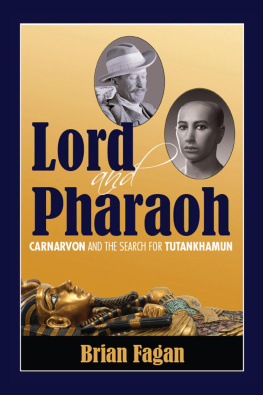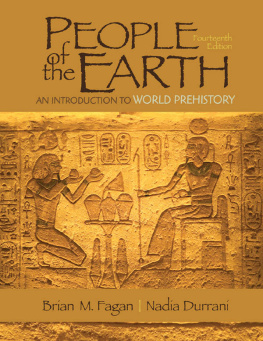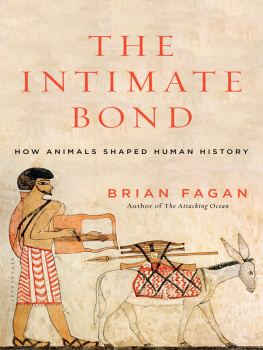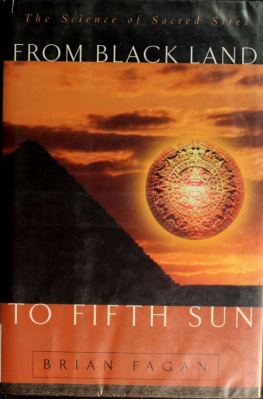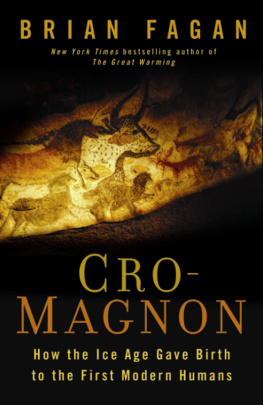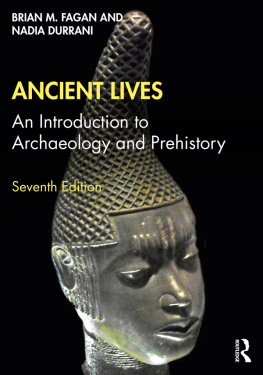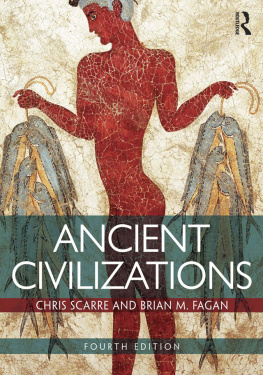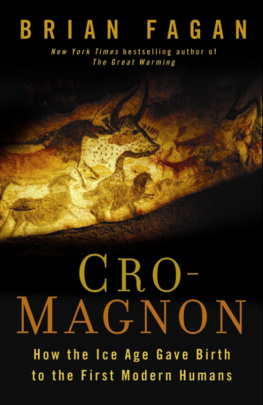Elixir: A History of Water and Humankind
Cro-Magnon: How the Ice Age Gave Birth to the First Modern Humans
Where We Saw a Whale: The Story of Lake Clark National Park, Alaska
The Great Warming: Climate Change and the Rise and Fall
of Civilizations
Fish on Friday: Feasting, Fasting and the Discovery of the New World
From Stonehenge to Samarkand (editor)
Chaco Canyon: Archaeologists Explore the Lives of an Ancient Society
Before California
The Long Summer: How Climate Changed Civilization
The Little Ice Age: How Climate Made History, 13001850
Egypt of the Pharaohs
Floods, Famines, and Emperors
Into the Unknown
From Black Land to Fifth Sun
Eyewitness to Discovery (editor)
The Oxford Companion to Archaeology (editor)
Time Detectives
Kingdoms of Gold, Kingdoms of Jade
The Journey from Eden
Ancient North America
The Great Journey
The Adventure of Archaeology
The Aztecs
Clash of Cultures
Return to Babylon
Quest for the Past
Elusive Treasure
The Rape of the Nile
Beyond the Blue Horizon
How the Earliest Mariners Unlocked
the Secrets of the Oceans
Brian Fagan

Copyright 2012 by Brian Fagan
All rights reserved. No part of this book may be reproduced or transmitted in any form or by any means, electronic or mechanical, including photocopying, recording, or by any information storage and retrieval system, without permission in writing from the publisher.
Published by Bloomsbury Press, New York
LIBRARY OF CONGRESS CATALOGING-IN-PUBLICATION DATA
Fagan, Brian M.
Beyond the blue horizon : how the earliest mariners unlocked
the secrets of the oceans / Brian Fagan.1st ed.
p. cm.
Includes bibliographical references and index.
1. Navigation, Prehistoric. 2. Sea peoplesHistory
3. Ocean travelHistory 1. Title.
GN799.N3F33 2012
910.45dc23
2011045758
ebook ISBN 978-1-6081-9385-1
www.bloomsburypress.com
First U.S. Edition 2012
This electronic edition published in July 2012
To
Peter and Pete
With gratitude for friendship and perceptive diagnosis
They seek only a view of the sea, what Jefferson called the water prospect without termination. Somehow that openness, at least to people usually pent up in lath and plaster, opens something else, certainly reverie, possibly looming as seamen know it, a glimpse over the horizon.
Herman Melville, Moby-Dick
Under the insistence of steam, and the Hydrographic Office, old concepts of sea, seafaring, and seascape must change.
The Century Magazine, September 1899
Contents
I learned to sail on the English Channel when I was eight years old, pushing seven decades ago. We sailed not in a gleaming fiberglass yacht or a high-tech racing dinghy, but in a heavy fishing boat with faded tan sails. When the wind dropped, we rowed, standing to our oars, for we were too small to sit and row from the thwarts. No engine, no electronic instruments, but we shipped out with a skipper who knew his home waters backwards. He measured the state of the tide by looking at exposed rocks, gauged the wind by feeling it on his weathered cheek, and knew almost as much about the local seabed as he did about the Dorset coastline where he fished. To sail with the first of my seafaring mentors was to step back into a working boat from Victorian times, when men like him lived off the sea by oar and sail, as his father and grandfather had done.
My childhood friends and I learned the basics of rowing and sailing the hard waynothing sophisticated, but enough to hoist and trim a sail, to pull an oar correctly, and to steer a course on a familiar landmark. But what we learned above all else was a feel for the sea and its moods, a way of looking at the ocean with a mixture of caution and respect that has remained with me for a lifetime of sailing.
A Dorset fishing boat was one thread in my sailing life. Another was literarythe works of Arthur Ransome, an English journalist turned childrens book author who wrote classic sailing tales between the 1930s and 1950s that are still devoured by generations of British young. They tell of the Swallows and the Amazons, two families of children who had believable sailing adventures in Englands Lake District, among the mudflats and shallows of Suffolk, and on the North Sea. Adventures on dinghies and small cruising boatsthe stories were so believable that I yearned to emulate them, and Im glad to say that I have. Teenage adventures in traditional converted fishing boats, dinghies, rented yachts, and then in boats of my own: my seafaring life has been a kaleidoscope of truly memorable experiences. And some very nasty ones: lying hove to in a North Sea gale and being becalmed for two days in the middle of the Mediterranean in a bumpy sea cannot be described as anything but indelibly unpleasant experiences.
Beyond the Blue Horizon had its birth in my sailing life, with all its varied adventures and mishaps, in decades of striving to complete voyages happily and safely. Most of the time, Ive succeeded, but there have been many times when Ive contemplated my mortality in the face of the seemingly inexorable forces of the ocean. Wherever Ive sailed, the past has lurked in the backgroundan anchorage off the shrines at Delos, in the heart of the Aegean Sea; burial mounds on the skyline in Denmark; the gray soils of shell middens on Southern Californias Channel Islands. Such lurkings bring out the archaeological side of me, the ghosts of long-vanished seafarers going about their business far from the spotlight of history. Inevitably, sailing fast in rough seas, Ive wondered how our forebears plucked up the courage to sail across open water to unexplored coastlines or to take passage beyond the horizon toward land that may not exist at all, with seemingly effortless panache. Making my way on a compass course across a seemingly featureless seascape, Ive thought of our ancestors paddling, rowing, and sailing across the same waters without any of the blandishments of modern technology or a reliable diesel engine belowdecks, let alone a compass. Then I start wondering: How do you cross oceans without charts, a compass, a sextant, or satellite navigation? How do you decipher the inconspicuous clues of impending foul weather or discern with certainty that land lies over the horizon? Then theres the question of questions: Why did our forebears go to sea at all? What compelling forces sent them into deepwater paddling or rowing on rafts, in dugouts and planked open boats, and, eventually under sail in much more sophisticated watercraft?
In my professional life, Im an archaeologist. My colleagues and I study ancient human societies as they change and develop over immensely long periods of time. The harsh realities of preservation mean that we reconstruct ancient cultures from durable, usually unspectacular clues such as stone tools, pottery fragments, and house foundations. Only rarely can we look beyond the artifacts at the intangibles of human existenceour cosmology, ritual beliefs, and social relationships. Perhaps hardest of all, how do we gain an understanding of how ancient people perceived the land- and seascapes around themand how did they decipher them?
Beyond the Blue Horizon is not a narrative of shipwrecks and watercraft, although these are important components in the story. Its about events both afloat and ashore. As the pioneering underwater archaeologist George Bass once forcibly reminded me, shipwrecks, however important, tell us more about societies ashore than they do about what survives on the seabed. Excavating shipwrecks can be glamorous, the stuff of which
Next page

